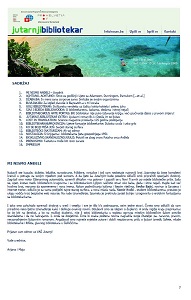

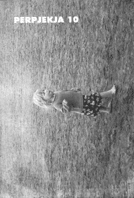
Keywords: clandestine People; displaced People; Emigration ; context of economic, political and social development ; Albania
Më 1996 bashkarisht me sociologun italian Luigi Perrone, profesor në Universitetin e Lecces, dhe ate francez Georges Lapassade, profesor i merituar në universitetin Paris VIII, vendosëm ta titullonim librin që po botonim (një përmbledhje të punimeve tona të deriatëhershme) “Naufragi Albanesi” dhe t'ia kushtonim atë viktimave të Adriatikut. Si me titullin, ashtu edhe me dedikimin, synonim ta vendosnim dukurinë “naufragi”, që në shqip përkthehet pak a shumë një fatkeqësi që vjen nga mbytjet në det, diku në të shkuarën e afërt dhe të largët të shqiptarëvë. Pas një periudhe disa vjeçare emigrimi të dhimbshëm (dhe zhvillimesh ekonomike, politike e shoqërore rraskapitëse për shqiptarët) dëshironim të jepnim një mesazh drite e shprese. Duke evokuar fatkeqësinë, dëshironim t'ia kalonim atë historisë.
More...Keywords: “MISSING” ; MATIAN EPICS
Paper’s purpose is to enlighten a part of Matian folklore in general, which was not absent in the province, in communities where these compositions were practiced, but it was only missed by interested scholars and readers. During this treatment we will bring to the attention of various readers, the realistic existence or expansion of the information regarding that part of historical epic in the district of Mati which till the present time was left aside of attention. However, our paper, certainly, can’t be the exposition and solution of everything having to do with this epic, but it should be considered as an incitement for further actions, for further deepening.
More...Keywords: ETNOGRAPHY OF LANGUAGE ; EPICS
More...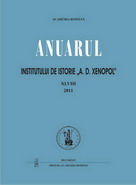
Keywords: French subject; census; Moldavia; every day life; consulates
Further to the issuing of the “Organic Regulation” (Regulamentul Organic), the first quasiconstitutional organic law of the Principalities of Moldavia and Wallachia, in order to prevent tax evasion among those claiming to be foreign subjects, a special committee was established who was in charge with removing from these all those who could not prove with authentic documents that they were foreign subjects. In order to carry out this obligation, the representatives of the consulates found in Iasi were asked to make a census of their own subjects. The French consulate presented a list of the 225 French subjects which were in Moldavia at the time. The occupation and place of birth of each person were recorded. Although the information we can find in the census about each person is very limited, by corroborating it with other data, we can get an image of what these French subjects represented in everyday life in Moldavia.
More...Keywords: Historical View ; Establishment of Scientific Archives ; IAKSA-s
This paper will provide an overview of scientific archives at QSA (The Center of Albani-an Studies), focusing on some historical aspects of their establishment, of institutional structures, implementation of collecting practices and documentation over a time frame of 60 years.
More...Keywords: Contribution of the Review ; Albanological Research ; Folklore and Ethnology (GJA-FE) ; Albanology ; Human Science
More...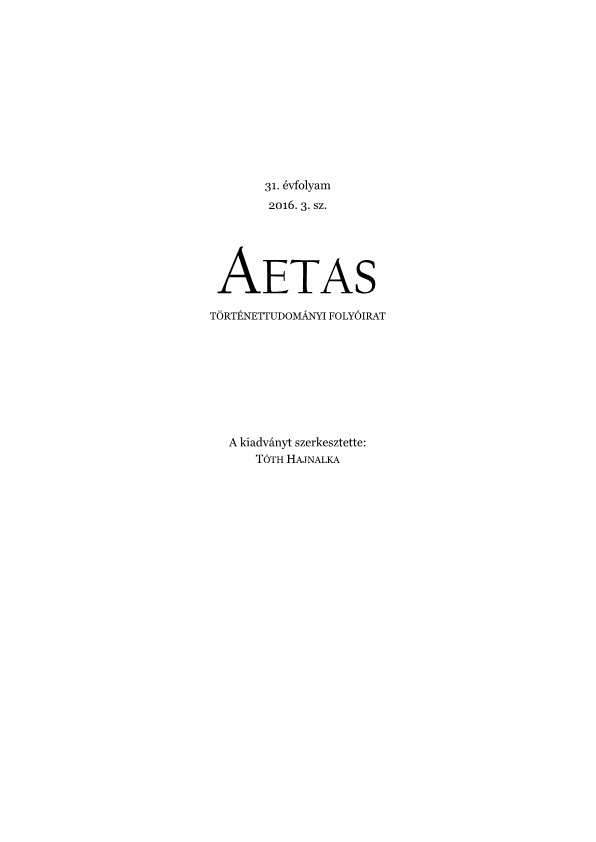
During the Ottoman occupation, Buda played an important role in the communication between the Habsburg and the Ottoman empires. After the peace of Zsitvatorok in 1606, Vienna had the opportunity to build up the system of “secret correspondents”, with one of its major stations in Buda. In the middle of the 17th century, Alexander Fischer, a renegade interpreter born in Vienna, who could also speak Hungarian, occupied the post. As the chiaus of Hüseyn at the side of the reigning pashas of Buda, he had access to important information, for example, about the raids on the border castles. He wrote his reports to the Vienna court under the pseudonym Hans Caspar, dated from Tata. In the turbulent 1650s, the role of Hans Caspar became more valuable to the Habsburg intelligence service, moreover, we have evidence that he even provided information to the men of the Transylvanian princes, thanks to his knowledge of Hungarian. At the same time, he most probably shared the information he gained during his missions in Vienna and Győr with his official superior. By analysing what Hans Caspar did as a spy, we can claim that his activity does not completely fit the typology the literature has drawn up about the operation of the “secret correspondents”.
More...
The last point of the treaty of Vasvár, concluded on 10 August 1664 between the Ottoman and the Habsburg courts, declared that the two states would mutually send envoys to each other. Walter Leslie, who departed from Vienna on behalf of Leopold I, was exchanged at the border with Kara Mehmed Pasha, the representative of Mehmed IV, in the last days of May 1665. Tasked with reestablishing diplomatic relationships, the Habsburg envoy spent almost ten months on the soil of the Ottoman state. He held negotiations with Ottoman statesmen in both Istanbul and Edirne. The secretary of the Habsburg mission was keeping a diary of their travels, in which he recorded the resting places where the mission stopped on its way to Edirne; what the envoy did in the towns they visited; and described those events and celebrations that were organized by the Ottoman officials in honor of the diplomatic mission. The paper aims at outlining chronologically the diplomatic mission of the Habsburg envoy Leslie on the basis of the daily reports provided by the mission secretary, Leslie's reports, the memoirs and notes of some members of the entourage, and lastly using information from Ottoman archival documents containing financial registers related to the supply of the mission.
More...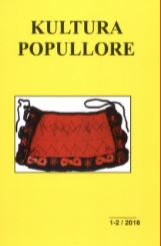
Keywords: SIMBOLIKA E BUKËS ; TRADITAT E SHQIPTARËVE ; NDËR SHEKUJ
Njeriu prej mijëra e mijëra vjetësh e ka nder të nevojshme të ketë banesë, të ketë veshje, sipas shkallëve të ndryshme të zhvillimit, të qytetërimeve, si mbrojtëse, nga më të thjeshtat e deri në modemitetin e sotëm. Por, si më themelore, si domosdoshmëri e jetës, ka qenë ushqimi i përditshëm, të ngrënët, ashtu si ka ndodhur dhe me tërë gjallesat jonjerëzore në botë. Një shkallë më e lartë e zhvillimit pruri miellëzimin e farërave të bimëve, pra të drithrave, të qullëzuarit me ujë, të pjekurit e të zierit në zjarr për një kohë. Më vonë u arrit në të formatuarit e qullit (të brumit) e të pjekurit e tij në zjarr nga doli buka. Pra, si ka ndodhur dhe me popuj të tjerë, buka u bë prej kohësh ngrënie përfaqësuese në të ushqyer dhe organizim prodhimi, prej nga del ajo (buka) ndër parailirë, ndër protoilirë, ndër ilirë, ndër arbër, ndër shqiptarë.
More...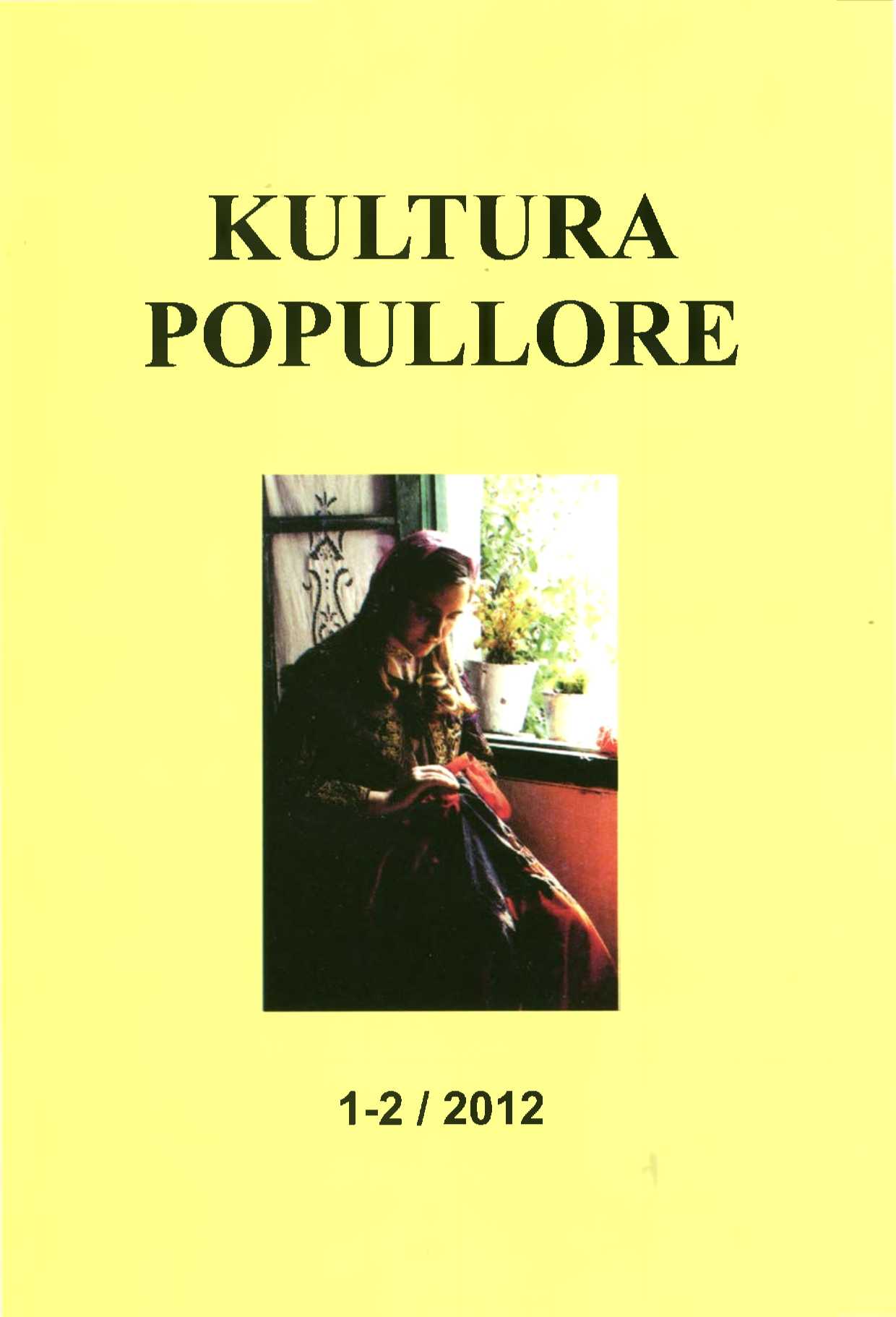
Keywords: FOLKLORINË VËMENDJE ; FAN S. NOLIT
Rilindësit shqiptarë, përgjithësisht, e kanë çmuar së tepërmi rolin dhe rëndësinë e folklorit, funksionet e tij, duke i vënë, në shumë raste, në shërbim të qëllimeve patriotike. Duke u përfshirë në këtë lëvizje të rëndësishme kombëtare, edhe Fan S. Noli, kur bën fjalë për kulturën tonë, ndër të tjera, shprehet: “Rilindja shqiptare, doemos, ishte një lëvizje politike dhe kulturore. Qëllimi ynë ishte të shpejtonim themelimin e një shteti të pavarur shqiptar dhe të çonim më tej kulturën dhe letërsinë shqiptare Në këtë vazhdë, Noli nuk i ka lënë pa shprehur interesimet e veta për folklorin, si një nga përbërësit e rëndësishëm të kulturës shqiptare. Për më tepër, për të mbështetur idetë e veta, në shumë raste, ai i është drejtuar konkretisht krijimtarisë folklorike shqiptare.
More...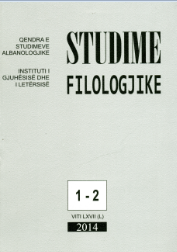
Keywords: STUDIME FILOLOGJIKE
1970 STUDIME FILOLOGJIKE 1970/1 STUDIME FILOLOGJIKE 1970/2 STUDIME FILOLOGJIKE 1970/3 STUDIME FILOLOGJIKE 1970/4 1971 STUDIME FILOLOGJIKE 1971/1 STUDIME FILOLOGJIKE 1971/2 STUDIME FILOLOGJIKE 1971/3 1972 STUDIME FILOLOGJIKE 1972/1 STUDIME FILOLOGJIKE 1972/2 STUDIME FILOLOGJIKE 1972/3 STUDIME FILOLOGJIKE 1972/4 1973 STUDIME FILOLOGJIKE 1973/1 STUDIME FILOLOGJIKE 1973/2 STUDIME FILOLOGJIKE 1973/3 STUDIME FILOLOGJIKE 1973/4 1974 STUDIME FILOLOGJIKE 1974/1 STUDIME FILOLOGJIKE 1974/2 STUDIME FILOLOGJIKE 1974/3 STUDIME FILOLOGJIKE 1974/4 1975 STUDIME FILOLOGJIKE 1975/1 STUDIME FILOLOGJIKE 1975/2 STUDIME FILOLOGJIKE 1975/3 STUDIME FILOLOGJIKE 1975/4 1976 STUDIME FILOLOGJIKE 1976/1 STUDIME FILOLOGJIKE 1976/2 STUDIME FILOLOGJIKE 1976/3 STUDIME FILOLOGJIKE 1976/4 1977 STUDIME FILOLOGJIKE 1977/1 STUDIME FILOLOGJIKE 1977/2 STUDIME FILOLOGJIKE 1977/3 STUDIME FILOLOGJIKE 1977/4 1978 STUDIME FILOLOGJIKE 1978/1 STUDIME FILOLOGJIKE 1978/2 STUDIME FILOLOGJIKE 1978/3 STUDIME FILOLOGJIKE 1978/4 1979 STUDIME FILOLOGJIKE 1979/1 STUDIME FILOLOGJIKE 1979/2 STUDIME FILOLOGJIKE 1979/3 STUDIME FILOLOGJIKE 1979/4
More...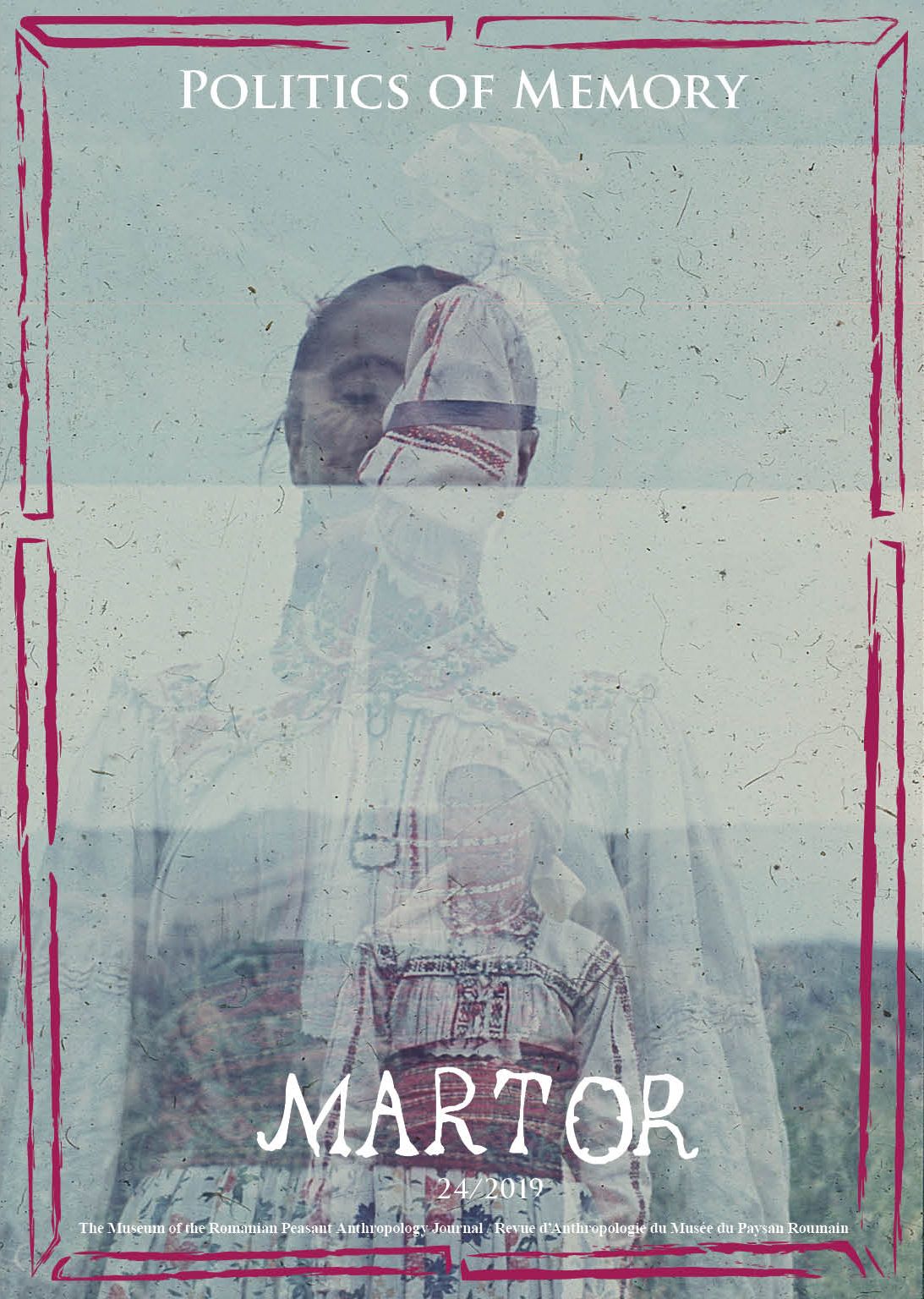
Keywords: Cultural policies; Albanian folklore; Institute of Folk Culture; archival politics; national-communism;
Constructive identity strategies articulated by cultural elites and cultural policies, starting with the nationalist movement of the nineteenth century, have instrumentalized tradition to communicate local identities within a multicultural world. This is why reactions in favor of the initiation of cultural policies for the collection and preservation of tradition, such as the archives, have increased with the establishment of these valuable nationalist sectors. In this study I focus on the role and dynamics of the ethnomusicology archive at the Institute of Folk Culture in Tirana between two political epochs: communism and postcommunism. I discuss the politics of culture and the importance of the archive under the communist regime as it made the object of special attention from the government. In this context a reciprocal relation was established, between the archive activities and the state funding for the dissemination of Marxism-Leninism, the national-communist ideology. Ultimately, I depict how the Soviet paradigm and the methodology continued also after the fall of communism, and how some young scholars, ethnologists and ethnomusicologists attempt for a paradigm shift (Roth 2014).
More...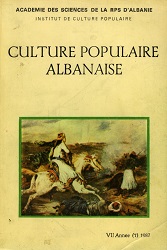
Keywords: Albanians; Greece; culture; language; new publications;
Une série de nouvelles publications, recouvrant de nombreuses connaissances et matériels sur les Arbereches de la Grèce, sur leur histoire et leurs traditions, sur la langue et le folklore et généralement sur cette diaspora, sont parues ces dernières années. La plus vaste place dans ces publications revient à celles des scientifiques des Arbereches de la Grèce. Ils sont à mentionner particulièrement les écrits et le matériel pleins d’intérêt publiés dans les revues «Dialogoi» et «Besa» ainsi qu’un bon nombre d’oeuvres de recueils folkloriques etc, des scientifiques Arbereches de la Grèce, comme: «Symvoli stin erevna tis istorias ton Arvaniton — To Martino (Mouzak) kai ta proerhomena ap’avto Larymna (Kastri) — Loutsi — Pyrgos — Synoptici istoria Opountion Lokron kai Minyeion Orhomenou II, Loutsi 1980 (175 pages) écrit par Georgiou K. Miha, arbereche de Martino. Le volume est divisé en certains chapitres consacrés à la position géographique, aux premiers habitants, béotiens, aux anciennes villes du territoire, à l’époque romaine, byzantine, turque, au Martino, en 1821. Dans les chapitres particuliers et relativement larges on parle de la langue des traditions arbereches de Martino, de Larimna, de Loutsi, de Pirgos. Dans le livre est motivé historiquement pourquoi au Matino on continue à parler même aujourd’hui la langue albanaise, avec la prétention qu’elle servira à la nouvelle génératipn pour aimer et apprécier la langue et leurs racines arbereches.
More...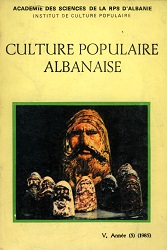
Keywords: book review; Albania; society development; culture;
Review of: «ETNOGRAFIA SHQIPTARE» XII (L’ethnographie albanaise» XII), Tirana 1982, 362 pp. Editions du secteur d’ethnographie de l’Institut de Culture populaire de l’Académie des Sciences de la RPSA. Review by: Yllka Selimi
More...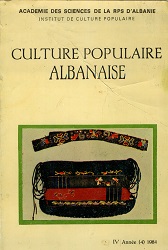
Keywords: book review; mythology; folklore; literature;
Review of: Prof. Alfred Uçi, Mitologjia, folklori, letërsia (Mythologie, folklore, littérature), Tirana 1982, Editions «Naim Frashëri», Tirana, pp. 404. Review by: Jorgo Panajoti
More...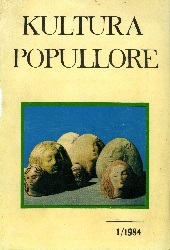
Keywords: book review; Albanians; folk sayings; proverbs;
Review of: FJALË TË URTA TË POPULLIT SHQIPTAR. Përgatitur nga Jorgo Panajoti dhe Agron Xhagolli, Botim i Institutit të Kulturës Popullore të Akademisë së Shkencave të RPS të Shqipërisë, Tiranë, 1983, 1076 f. Review by: Emil Lafe
More...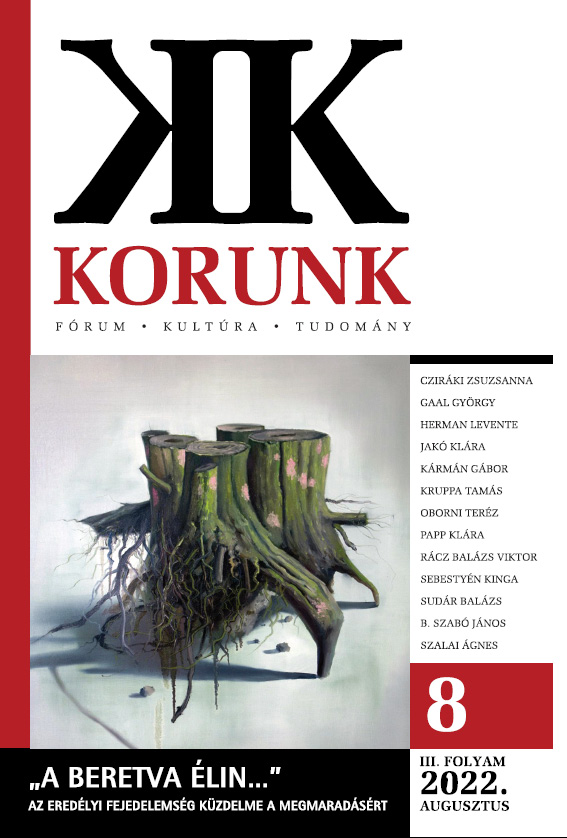
Keywords: Principality of Transylvania; Michael I Apafi; struggle; Halmágy Region
The era of the Principality of Transylvania (1661-1690) marked by the name of Michael I Apafi is considered by historians as a turbulent period of the state. This was mainly due to the events of the second sovereignty crisis, the fall of Varad (1660) and the fall of most of Partium to the Ottomans. As a consequence, a considerable part of the western Transylvanian counties were forced to pay taxes to both the Ottoman provinces and the principality, i.e. this region was also characterised by the so-called double possession (condominium). In order to run their provinces, the Ottoman vilayets’ heads sought to increase their taxed territories at the expense of the Principality of Transylvania. This period became a constant source of conflict between Transylvania and the Ottoman provinces. The aim of the study is to describe one episode of the conflict: the negotiations between the Temesvár Vilayet and the government of the Principality of Transylvania for the taxation of the villages in the Halmágy region in 1670-1671 and to present the results.
More...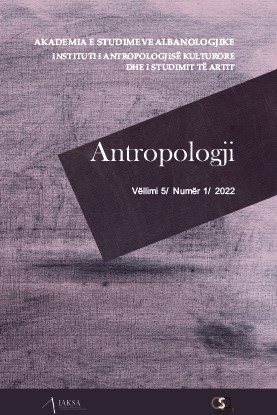
Keywords: Bibliography; Kultura Popullore; 1980-2016;
Bibliography of the journal "Kultura Popullore"
More...
International Conference Civil Society & Think Tank Forum 2022 in the Framework of the Berlin Process Organizers: Southeast Europe Association (Südosteuropa-Gesellschaft) in cooperation with Aspen Institute Germany, supported by the German Federal Foreign Office Berlin and online, 1 / 2 November 2022 ----------------------------- Fachkonferenz Regionale Initiativen auf dem Westbalkan - Chancen oder Fallen Veranstalter: Zentrum für zivile Erziehung (CGO/Centar za građansko obrazovanje) in Podgorica in Kooperation mit der Südosteuropa-Gesellschaft und der Friedrich-Ebert-Stiftung Belgrad Ort: Podgorica (Montenegro), 25. Oktober 2022 ------------------ 19. Frankfurter Medienrechtstage 2022 Der öffentlich-rechtliche Rundfunk – Ein Grundpfeiler der Demokratie? Veranstalter: Studien- und Forschungsschwerpunkt Medienrecht an der Europa-Universität Viadrina Frankfurt (Oder) / Südosteuropa-Gesellschaft e.V. / Konrad-Adenauer-Stiftung e.V. / mit freundlicher Unterstützung der Märkischen Oderzeitung Ort: Frankfurt (Oder), 1./2. Dezember 2022 ---------------- 7. Deutsch-Bulgarischer Geschichtstag Veranstalter: Deutsch-Bulgarischer Geschichtsverein „Pamet“ e. V. (Münster), Verein L. Bulgaricus Jena e.V., Institut für Slawistik und Kaukasusstudien der Friedrich-Schiller-Universität Jena mit Unterstützung der Bundesstiftung Aufarbeitung und der Alfred-Töpfer Stiftung (Hamburg) sowie in Kooperation mit der Südosteuropa-Gesellschaft, der Deutsch-Bulgarischen Elterninitiative „Jan Bibijan“ und der Stadt Jena Ort: Jena, 12. November 2022
More...